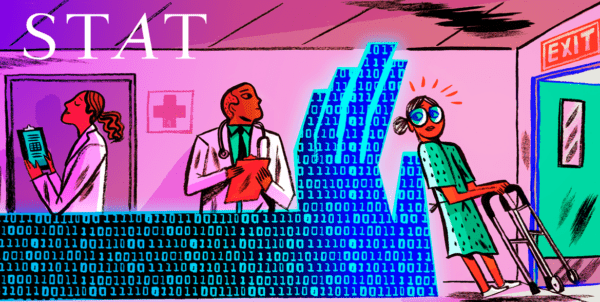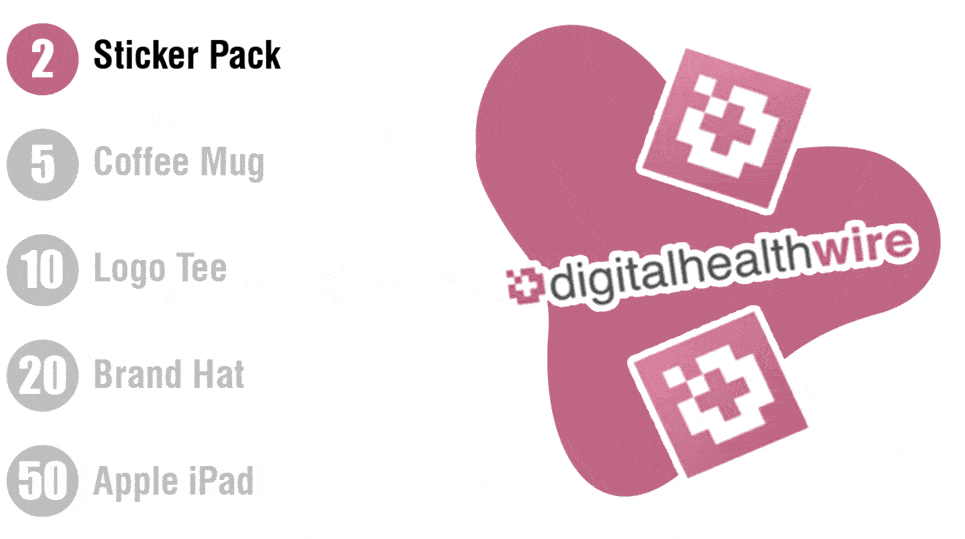|
AI Harms MA Plans | Google Open Health Stack
March 16, 2023
|
|
|

|
|
Together with
|

|
|
|
“From the perspective of looking back 30 years hence, there are no AI experts today. This is good news for anyone starting out right now, because you have as much chance as anyone else of making breakthroughs and becoming the reigning experts.”
|
|
Former Wired Magazine Editor in Chief Kevin Kelly
|
|

|
|
It’s a tough week to be working PR at Medicare Advantage plans after STAT put out an in-depth investigation revealing that payors are using “unregulated predictive algorithms under the guise of scientific rigor” to cut off care for seniors.
Hit piece might be too aggressive of a label, but let’s just say it’s a strongly worded report that makes some MA players look very, very bad.
The booming popularity of Medicare Advantage has turned it into a cornerstone of many payor strategies. According to the report, these payors are now using AI to pinpoint when they can plausibly begin cutting off payments for treatment.
- These algorithms have begun driving denials to new heights, delaying treatment of seriously ill seniors and setting off heated disputes between doctors and payors.
- If patients or their physicians disagree with a denial, they’re funneled into an endurance race with payors through a lengthy appeal process.
- As Calvary Hospital COO Chris Comfort described it, “We take patients who are going to die of their diseases within a 3 month period of time, and we force them into a denial and appeals process that lasts up to 2.5 years. So what happens is the appeal outlasts the beneficiary.”
An entirely new industry has sprung up to help payors predict everything from the providers patients might see to the minimum number of hours they’ll have to stay in a nursing home.
- These AI-generated predictions have become so ingrained in MA that most payors have started bringing these capabilities in-house. Elevance, Cigna, and CVS Health have all made acquisitions in the space.
- David Lipschutz at The Center for Medicare Advocacy told STAT that “while the firms say [the algorithm] is suggestive, it ends up being a hard-and-fast rule. There’s no deviation from it… no accounting for situations in which a person could use more care.”
One of the largest and most controversial companies supplying these predictions is NaviHealth, now owned by UnitedHealth Group, and STAT spent the second half of the report basically using them as a punching bag.
- NaviHealth was founded by Tom Scully, the former head of CMS who played a pivotal role in creating the Medicare Advantage program under the Bush administration.
- You’ll have to head over to the full report for the tear-jerking patient stories, but long story short Scully sold NaviHealth to Cardinal Health for $410M in 2015, then ownership bounced between different PE firms until it landed at United. Denials went up every step of the way, and now we have a STAT investigation.
The Takeaway
“The black box of the AI has become a blanket excuse for denials,” and nobody wants a canned response about a proprietary algorithm when they ask why they’re being kicked out of a nursing home. Federal officials have already proposed new rules that say MA payors can’t deny coverage “based on internal, proprietary, or external clinical criteria not found in traditional Medicare coverage policies,” and STAT just added more fuel to the industry’s push for change.
|




|
|
4 Tips for Licensing Your Telehealth Providers
Telemedicine is the next frontier of care delivery, yet many providers continue to be hampered by the complex process of medical licensing. If you’re one of them, check out Medallion’s four tips for licensing your telehealth providers.
|
|
Innovation Starts With Listening to Nurses
Nurses are the most valuable players in the healthcare system. Their wisdom and dedication serves as a constant reminder for what’s possible in healthcare when we listen. Check out the connectRN virtual experience to hear 10 powerful stories from nurses who want to disrupt the industry.
|
|
- Google Debuts Open Health Stack: Google caught the industry up on a string of health initiatives at its annual The Check Up demo, including Search functionality that makes it easier to find Medicaid re-enrollment info, Fitbit’s Health Metrics Dashboard, and the grand unveiling of Open Health Stack. The last one was definitely the big one. Open Health Stack is an open source program for developers to build health-related apps that features an Android Software Developer Kit, design guidelines for health apps, and FHIR Analytics to derive insights and assign role-based data access to various stakeholders.
- Atropos Adds OMNY Data: Atropos Health’s real-world evidence platform is expanding its data ecosystem through OMNY Health’s de-identified clinical and specialty data. The collaboration unlocks a wider range of actionable insights available through Atropos Prognostograms, RWE reports that answer clinical questions with insights derived from millions of patient encounters. The new data should help Atropos continue bridging the evidence gap for both life science companies investigating medical breakthroughs and physicians at the point of care.
- Prior Auths Leading to Care Delays: The 2022 AMA Prior Authorization Physician Survey revealed that practices are completing more prior authorizations than last year and seeing more care delays as a result. Over 88% of the 1k physicians surveyed described the process as a high burden, with practices completing an average of 45 prior auths per physician per week. The majority of physicians (86%) felt that prior authorizations lead to higher utilization of healthcare resources – pretty much the exact opposite of what they were designed to prevent.
- GPT-4 Hot Out the Gates: It’s been less than 48 hours since OpenAI took the lid off GPT-4 and nimble entrepreneurs have already started flooding the internet with products leveraging the multimodal model’s new capabilities. The ability to transform text and picture inputs into functioning solutions has already led to some mind blowing GPT-4 use cases: turning a sketch into a functioning website, coding video games from descriptions, and best of all (so far) – drug discovery.
- Masimo + Temple: Philadelphia-based Temple Health is collaborating with medtech company Masimo on a series of new remote patient monitoring, care automation, and telehealth initiatives. The partnership includes pilot programs for several Masimo technologies at Temple, including the Massimo W1 (smartwatch that tracks hydration, blood oxygen, heart rate variability, respiration) and the Radius VSM (modular vitals monitor that can scale between a full bedside monitor and a lightweight wearable depending on need).
- Shorter Visits Reduce Care Quality: New research published in JAMA linked shorter primary care visits to lower quality care. After looking at over 8M primary care visits across 4.3M patients, the authors recorded an average visit length of 18 minutes, with each additional minute decreasing the probability of inappropriate antibiotic prescriptions for upper respiratory tract infections by -0.11 percentage points and reducing the the probability of coprescribing opioids and benzodiazepines by 0.01 percentage points.
- Synapse Drug Database Selection Guide: For anyone that missed Synapse Medicine’s walkthrough on selecting the right drug database and CDS support, the full conversation with CEO Clement Goehrs, MD is now live on their website. Definitely worth checking out for anyone that has providers or a digital health solution that needs access to real-time drug information for prescribing, dispensing, and managing medications across complete patient journeys.
- Health Gorilla x CLEAR Identity Verification: Right on the heels of being approved to onboard as a Qualified Health Information Network, Health Gorilla is partnering with CLEAR to launch Individual Access Services (IAS), which allows consumers to easily verify their identity to access and share their electronic health records. IAS is initially rolling out in Puerto Rico, but Health Gorilla and CLEAR have both been building momentum in the US and plan to expand the new service to other regions in the future.
- Contract Labor Up, Non-Clinical Support Down: A Syntellis analysis of data from over 1,300 hospitals found that contract labor expenses surged by 258% from 2019 to 2022. Contract labor full-time equivalents increased by 138% as outside staff helped fill gaps across nursing departments (46% of total contract hours), EDs (12%), and surgical services (7%). No surprises there, but it was interesting to see that total non-clinical support expenses decreased slightly (-0.2%) over the time period.
- Providence and Luna PT Partnership: Providence is teaming up with Luna to give its patients access to in-home physical therapy from local therapists. The Luna Physical Therapy app lets patients schedule appointments with therapists that oversee their complete treatment plan, while also allowing them to message their therapists and perform monitored exercises between visits. Luna’s been on a hot streak with the announcements, recently adding similar partnerships with AARP and UCI Health.
- Email Nudges Boost Statin Prescribing: When physicians receive email reminders about proper dosing of high-intensity statins for their heart disease patients, the medications were more likely to be prescribed and adhered to. That’s from a 15-month study involving 245 clinicians and 37k patients, finding that high-intensity statin prescribing dropped by 2.2% in the usual-care group and rose by 1.6% in the email reminder group. However, 31.6% of physicians in the intervention group dropped out of the study, possibly due to “alert fatigue.”
|
|
Successful RPM Through End-to-End Support
From needs assessments and program deployment to security enhancements and call center monitoring, Clear Arch Health offers fully customizable support services to help you get the most from your RPM solution.
|
|
The New Standard for Prescription Safety
Synapse Medicine’s quick-deploy Prescription Assistance API and components can be up and running in less than a day and instantly connect your HCPs to real-time drug data and prescribing support. Find out how easy it can be to equip your providers with the tools they need to ensure prescription safety and precision for their patients.
|
|
Clinical Documentation Integrity For VBC
The growing use of risk-adjusted reimbursement in outpatient settings means clinical documentation needs to keep up, or health systems risk leaving revenue on the table. Check out Nuance’s new blog to learn how shifting reimbursement models make clinical documentation excellence more important than ever, and how AI can help you achieve it.
|
|
|
Share Digital Health Wire
|
|
Spread the news & help us grow ⚡
|
|
Refer colleagues with your unique link and earn rewards.
|

|
|
|
|
Or copy and share your custom referral link: *|SHAREURL|*
|
|
You currently have *|REFERRALS|* referrals.
|
|
|
|
|